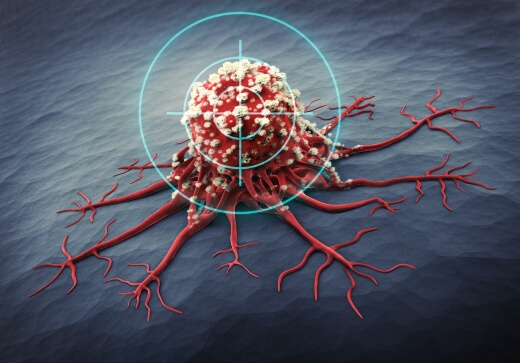GPS Vaccine Plus Opdivo Shows Promise for Pleural Mesothelioma
Research & Clinical TrialsWritten by Tim Povtak | Edited By Walter Pacheco

A novel, targeted cancer vaccine combined with the immunotherapy drug Opdivo has shown surprising efficacy for mesothelioma patients whose disease no longer responds to standard chemotherapy.
In a phase I clinical trial at Memorial Sloan Kettering Cancer Center, the galinpepimut-S vaccine, also known as GPS, has produced an impressive, anti-tumor synergy with Opdivo, based upon early data.
GPS targets the WT1 protein, which is expressed in high levels of various cancers but rarely seen in normal adult cells. The protein has been especially resistant to standard chemotherapy.
The vaccine works by inducing a powerful T-cell immune response against the WT1 antigen. Apart from a low-grade, temporary reaction at the injection site, the vaccine has shown few side effects.
SELLAS Life Sciences Group, a biopharmaceutical company based in New York City, developed the vaccine. It has already received orphan drug and fast track designations from the U.S. Food and Drug Administration.
“Patients treated with this combination appear to be living longer than expected,” Dr. Angelos Stergiou, president and CEO at SELLAS, told The Mesothelioma Center at Asbestos.com. “It has been quite impressive.”

Learn how to access mesothelioma clinical trials for immunotherapy.
Sign Up NowVaccine Combination Could Prolong Survival
Only the first four patients in the study, all male, are included in the early data. Three have the epithelioid cell type and one has the tougher-to-treat sarcomatoid variety. Two of the four were diagnosed as stage 4. All had shown disease progression or were resistant to front-line chemotherapy.
All four received at least one month of treatment that included the GPS vaccine and Opdivo, also known as nivolumab. The drug is part of the FDA’s recently approved first-line therapy for pleural mesothelioma.
The average progression-free survival was 8.8 weeks. Median overall survival was 35.4 weeks, the time at which the data was taken. Stergiou expects the median overall survival to be considerably longer when the next report is delivered at the end of 2021.
By comparison, patients with relapsed or refractory mesothelioma have an estimated median overall survival between 20 and 24 weeks.
“GPS provides ongoing support and memory to the immune system,” Stergiou said. “In combination, there is potential to target and destroy residual cancer.”
Most impressive was the patient with the sarcomatoid variety of mesothelioma, which is typically the toughest to treat and comes with a 5- to 6-month survival estimation from time of diagnosis. The patient in this study was still alive after 25 months.
In an earlier double-blind, placebo-controlled clinical trial, the GPS vaccine produced a 21.4-month median survival for mesothelioma patients who had already completed multimodal treatment. The placebo group had a median survival of just 16.6 months.
The vaccine also is in various developmental phases for use with multiple myeloma, ovarian cancer and a rare form of brain cancer.
GPS Vaccine Effective at Preventing Recurrence
Earlier research has shown the GPS vaccine’s effectiveness was best when used to prevent recurrence of disease, or in combination with a standard treatment.
As a second-line treatment, it has been lauded as a potentially effective way to prevent or delay recurrence in patients who have achieved complete remission or have minimal residual disease.
“Even with someone with disease progression, there could be benefits from a survival perspective,” Stergiou said. “That’s really where we are right now.”
The FDA’s fast track designation is designed to expedite review of a drug and aid in its development, particularly for rare diseases such as mesothelioma, an aggressive cancer with no definitive cure.
Mesothelioma is caused by the inhalation or ingestion of microscopic asbestos fibers and is diagnosed in an estimated 3,000 people annually in the U.S.
The clinical trial at Memorial Sloan Kettering will continue accepting new patients, and the vaccine is expected to be examined with different combinations in other studies.
“People should not think this is some kind of miracle drug, but we are seeing early that there is real promise involving mesothelioma,” Stergiou said. “This could be a safe and secure therapy for patients to help prolong survival. We’re excited to continue the developmental process.”






